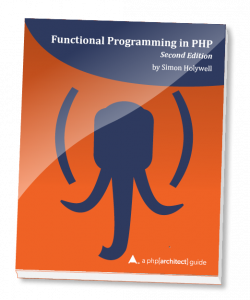Announcing Eliza for PHP
At a hackathon at the Madison PHP 2018 conference, on a lark I made a quick port of the classic ELIZA chatbot therapist to PHP. (It made sense in context, trust me.)
After a little further cleanup I'm happy to announce that it's now fully released on Packagist and just a quick composer require away!
For those not familiar with it, ELIZA was one of the very first natural language processing programs. By which I mean it runs a few regexes over text strings in order to pick a response that makes it sound vaguely like a real therapist, if you turn your head and squint and have never met an actual therapist. (With due apologies to the actual real therapists out there.)
